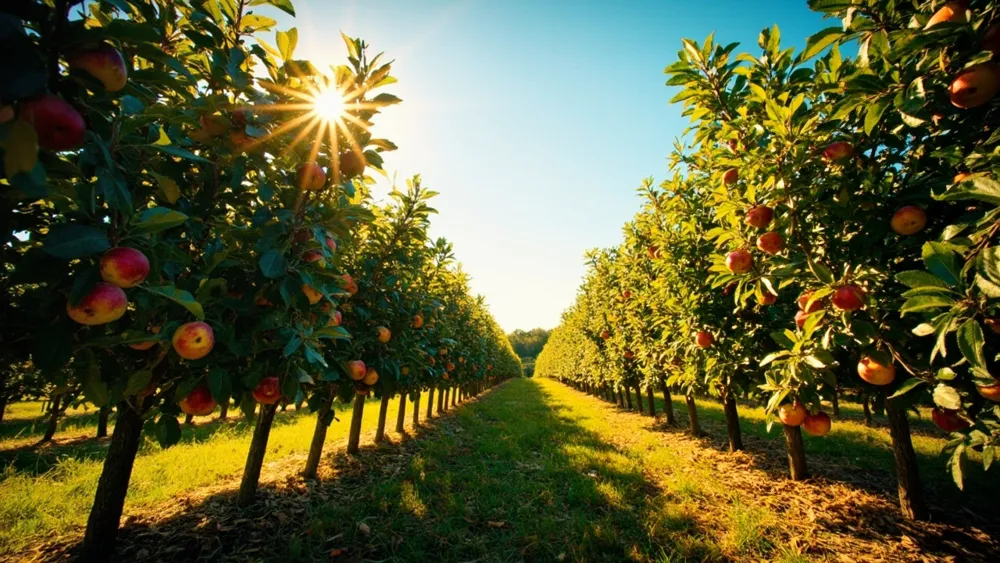Innovating Apple Cultivation: India’s Search for Sweet Success

The quest for better apple varieties has taken an intriguing turn in India, where innovative scientists and farmers are working to cultivate apples in traditionally unsuitable climates. This effort is critical not only for boosting local agriculture but also for addressing consumer demands, as India grapples with increasing apple imports alongside a burgeoning market. Understanding how climate change affects agriculture and exploring new cultivation practices could potentially transform the trade landscape and local economies.
At its core, the development of low-chill apple varieties looks to overcome the climatic limitations that have historically hindered apple production in subtropical regions of India. Typically, apple trees require a cold period known as chilling hours—between 0°C and 6°C—for a successful harvest. However, recent agricultural endeavors have focused on breeding varieties capable of thriving with drastically fewer chilling hours, as low as 400 hours. For example, the Birsa Agricultural University in Ranchi has started experimenting with these low-chill saplings, where initial results are mixed but indicate potential for future development. This pioneering approach illustrates how innovative breeding could redefine agricultural practices within challenging climates.
Despite the challenges encountered, the ongoing experiments and scientific efforts are bolstered by the high domestic demand for apples in India, which has risen 15% over the last five years. Farmers like Kakasaheb Sawant, who have taken the leap to plant apple trees in Maharashtra, are examples of this new wave of agricultural experimentation spurred by necessity. His local journey shows how apples cultivated in atypical environments can attract curious visitors and generate awareness of horticultural possibilities. However, skepticism remains, particularly regarding the quality and shelf life of apples produced under less-than-ideal conditions, as expressed by experts such as Dr. Dinesh Thakur. These contrasting viewpoints emphasize a crucial question: will India’s ongoing pursuit of better apple varieties yield fruitful results or become a cautionary tale in agricultural adaptation?
Read These Next

Digital Governance in Ukraine: Innovating Through Adversity
Ukraine's digital governance transformation amid conflict showcases resilience and innovation, important lessons for countries worldwide.

Liu Qiangdong denies rumours of entering the online car-hailing market
Liu Qiangdong denies JD's entry into online car-hailing, focusing instead on alcohol travel and takeout businesses.

Texas' New Online Child Safety Law: Impacts on Tech Firms and Users
The article explores Texas's new online safety law designed to protect children, emphasizing its implications for tech giants and potential ripple effects across the U.S.
